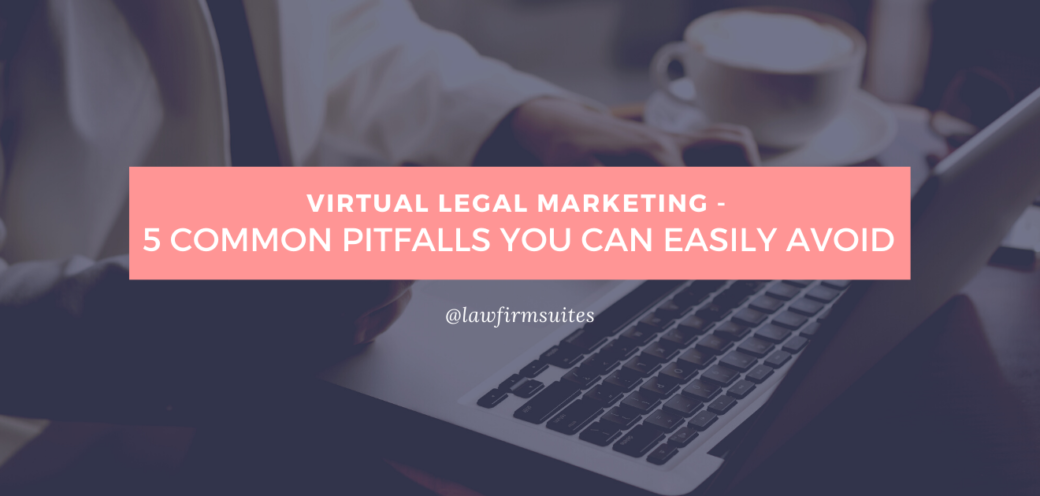Providing legal services has gone virtual. Almost every possible legal task, from going to court to filing pleadings to dispensing legal advice, is now being performed remotely due to the pandemic’s distancing requirements.
Legal marketing has necessarily gone virtual too. Far fewer people are viewing your billboards or your newspaper ads. Instead, potential clients are working and playing online, and there are ways to target them with information about your firm that will attract those who need your services to visit your site.
This article sets forth the five most common pitfalls of virtual legal marketing from an ethical standpoint. There are many ways an attorney or her SEO or web designer or marketer can unwittingly run afoul of the ethics requirements with their website design or content, their blog, or their social media marketing. Know in advance what language and tactics you must avoid.
Pitfall #1: Calling Yourself an “Expert” or a “Specialist”
Most states have enacted a statute similar to Model Rule of Professional Responsibility (“Rule”) 7.4(d), which prohibits claiming “expert” or “specialist” status unless you have been certified in a particular practice area in accordance with the rules in your state.
These terms are used generously in marketing language, as they have no definition in any profession other than the practice of law. Laypeople on your marketing team need to be aware of this and avoid using this language unless you are certified in a particular practice area.
Pitfall #2: Failing to Include Disclaimers
Be sure to disclaim an attorney-client relationship.
Rule 1.8 defines duties to prospective clients and the duty to investigate for conflicts. It is crucial that a prospective client know how and when an attorney-client relationship, with all of its attendant rights and responsibilities, is established.
For this reason, website content, your blog posts, and your social media posts should always include a disclaimer such as the following:
Reading this content does not create an attorney-client relationship. An attorney-client relationship is created only when a contract for services is signed by us both.
Do not imply that a new client will get results.
It is common for attorneys to cite past victories, settlements, and judgments awarded in their websites, and there is nothing unethical about that as long as you include a disclaimer like the following:
These examples are real cases and real clients but are not meant to imply that we will get the same or similar results in your case. Every case is different, and when you have your consultation with us, we will be able to assess your case and advise you.
Always use a disclaimer that online content is not legal advice.
Last, every page on your site and every blog post should end with something like:
This is not legal advice and you should not take this as legal advice. This is only general information, and because every client’s case is unique, it is not actionable. We can give you advice specific to your situation when we have your consultation.
Pitfall #3: Using an Unethical Firm Name
Law firm names are governed by Rule 7.5, which prohibits “false, fraudulent, deceptive, or misleading” names. Under this rule, law firms may not use pluralistic language implying that there is more than one lawyer on staff when there is not.
You may not use names like “(Your Name) & Associates” or “The (Your Name) Law Group” if your firm is just you and your staff. However, a sole practitioner may use the word “Firm” in the law firm name.
Pitfall #4: Unwittingly Posting Misleading information
Using “lawyers” or “offices” when there is only one
Posting misleading information is unethical. Even the use of “lawyers” when your firm has only one lawyer is misleading in that it implies your firm is larger than it is. Use words like “legal team” instead.
Advertising in a jurisdiction where you are not admitted to practice law
One unfortunate consequence of advertising on the world wide web is that anyone in the world can access your content despite the fact that you may practice law in only one state. The Rules provide that at least one attorney in your firm must take responsibility for online content and that a physical address with jurisdiction admissions be prominent on your site.
Pitfall #5: What is “Puffery” in any other Profession is Making an Unsubstantiated Claim and Unethical for an Attorney
The use of language such as “our firm has the most experience” or “our attorneys are the best at getting results” is an ethical violation because it cannot be substantiated. Most other service providers can use these terms and the language is considered mere “puffery,” but a law firm or attorney may not.
Instead, use factual claims such as:
- Our attorneys have over 80 years of combined experience in (practice area)
- Our firm has represented (practice area) clients in (your jurisdiction) for over 25 years
- Our firm has gotten over $4 Million in settlements and judgments for our clients
- Our attorneys have gotten over 300 convictions overturned
- We have gotten over 700 clients a fresh start
- Over 1,000 families have trusted us with their estate planning needs.
Last, in most states, the ethical violations of a website designer, blogger for hire, or SEO are imputed to the attorney who hired them. Be sure to make everyone on your marketing team aware of these potential pitfalls and supervise them until you feel confident they grasp the limits of the language they are permitted to use on your behalf.
About the Author
Veronica Baxter is a writer, blogger, and legal assistant living and working in the great city of Philadelphia. She frequently works with ACE legal marketing.


